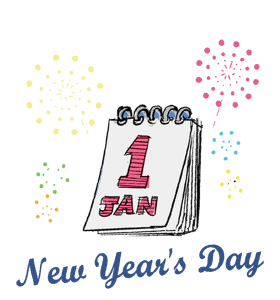New Year's Day
New Year's Day Quick Facts in the UK
| HashtagsCompiled on | #NewYear2026 |
|---|---|
| Related Hashtags | #NewYearsEve, #Christmas |
| 2026 Date | 1 January 2026 |
| 2027 Date | 1 January 2027 |
2026 Holidays & Dates - UK
| UK & Common Holidays | ||
| Misc. & Int'l. Observancesℹ | ||
| Christian Holidays | ||
| Jewish Holidays | ||
| Muslim Holidays |
› | ||
